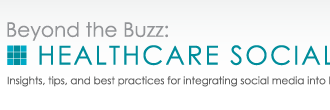The February issue of Health Affairs proclaims, “New Era of Patient Engagement,” but what signals changing times as much as a new intensity of academic interest is the money and power muscling in to support this putative new paradigm.
The February issue of Health Affairs proclaims, “New Era of Patient Engagement,” but what signals changing times as much as a new intensity of academic interest is the money and power muscling in to support this putative new paradigm.
The cash and clout were on clear display at a Health Affairs seminar held in an upscale Washington hotel to showcase some of the authors and findings in the influential journal’s first-ever theme issue on this topic. Sponsors of the issue included two long-time donors to health care do-goodism, the Robert Wood Johnson Foundation and the California HealthCare Foundation. But they also included a foundation built on the fortune of the co-founder of Intel Corp. (the Gordon and Betty Moore Foundation) and a non-profit created by Congress and expected to give away roughly a billion dollars by 2015, the Patient-Centered Outcomes Research Institute (PCORI).

A physician performs a routine checkup; engaging the patient in her care is something else again. (Photo credit: Wikipedia)
The meeting keynoter was the nation’s top public health and health policy official, Dr. Howard Koh, assistant secretary for health of the Department of Health and Human Services; Koh was also lead author of an article. The lead author of another article, although not present, was Dr. Delos Cosgrove, chief executive officer of the famed Cleveland Clinic, a multi-national medical enterprise listed as the second-top grossing hospital in the United States. Yet a third article came from executives of Express Scripts, a Fortune 100 company that vies with CVS Caremark for dominance in the pharmaceutical benefit management business.
Warm and fuzzy was out. Big and important was in. Health Affairs editor-in-chief Susan Dentzer set the tone by noting patient engagement has been called “the blockbuster drug of the century” (the phrase comes from Health IT expert Leonard Kish) for its potential to improve the quality of care and lower costs.
That may be an understatement: even the biggest blockbuster drug can be sold only to those who have the medical condition the drug addresses. Patient engagement, by contrast, applies to every patient with every condition, inside the hospital, at the doctor’s office and, with new telehealth interventions, pretty much everywhere else.
Patient engagement is also more important than ever for two reasons that also have big price tags attached. The first is the ever-more-pronounced shift in the burden of disease among the U.S. population from acute to chronic conditions. A stunning 148 million Americans, or half the population, suffer from asthma, depression, diabetes or some other chronic disease, and they now account for three of every four dollars spent on health care. Chronic diseases have become the leading cause of death and disability.
As a website promoting “Triple Solution for a Healthier America” put it: “Chronic diseases are crushing health care.” Quite simply, chronic disease cannot be successfully fought without enlisting the patient in the battle. When many providers hear, “Patient engagement,” they think, “Lifestyle changes and medication compliance.” That website helping inform providers about this issue? It’s sponsored by GlaxoSmithKline, which makes medications to treat asthma, depression and diabetes, among other conditions.
The other patient engagement strategy with a price tag attached has to do with government rules and regulations affecting provider reimbursement. Whether it’s a hospital, an accountable care organization (ACO) or a patient-centered medical home, compensation is increasingly linked to the CAHPS score (a patient experience of care survey). The result has been a bevy of consultants promising to boost those numbers for provider clients.
Similarly, hospitals and doctors trying to meet “meaningful use” requirements that came attached to federal grants to buy electronic health records (EHRs) must be able to demonstrate certain minimum levels of patient engagement (such as access to medical tests) being enabled by those EHRs. The continued push for consumer e-health by the federal Office of the National Coordinator for Health IT has spawned a corresponding interest in the topic by the big EHR vendors such as Epic, Cerner, GE Healthcare, Allscripts, athenahealth and others.
The biggest price tag of all is the bottom line on total cost of care. In an era of bundled payments to providers, it is becoming more profitable to keep patients well than to have them return visit-after-visit for sick care. As a Health Affairs brief summarizing the research on patient engagement put it: “A growing body of evidence demonstrates that patients who are more actively involved in their health care have better outcomes and incur lower medical costs. This finding is motivating health care organizations to better inform patients about their conditions and care choices, so they can be more fully involved in maintaining their health and making decisions about their care.”
The broader concept of patient-centered care first gained widespread notice as a result of a 2001 Institute of Medicine report calling it one of six core goals of a 21st-century health care system. Patient-centeredness was defined as “care that is respectful of and responsive to individual patient preferences, needs, and values and ensuring that patient values guide all clinical decisions.” A 2012 IOM report got even more specific, endorsing “engaged, empowered patients” as part of a system “anchored on patient needs and perspectives” and promoting “patients, families and other caregivers as vital members of the continuously learning team.”
The formal title of that report was, “Best Care at Lower Cost: The Path to Continuously Learning Health Care in America.” Even the “goo-goos” of American medicine are following the money.









